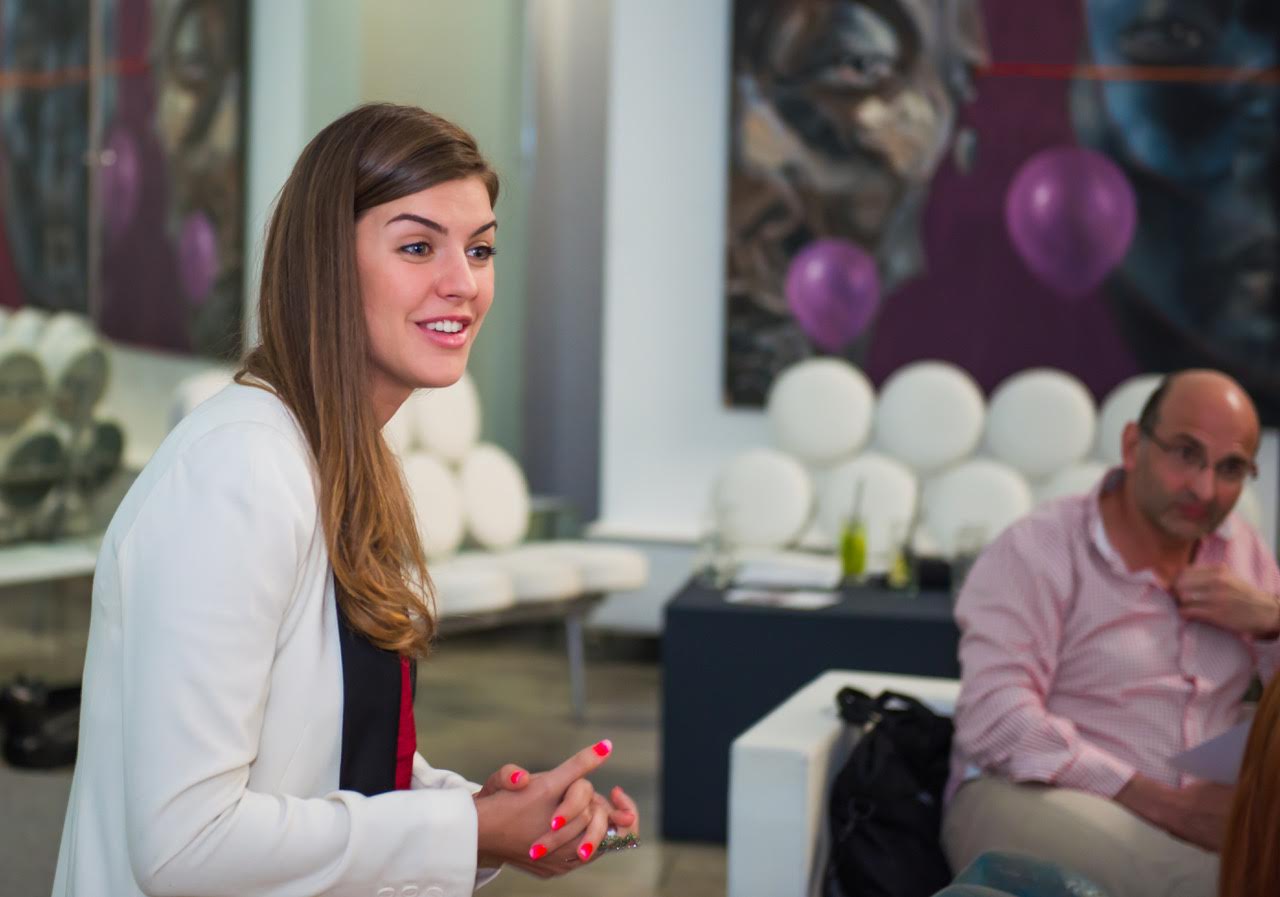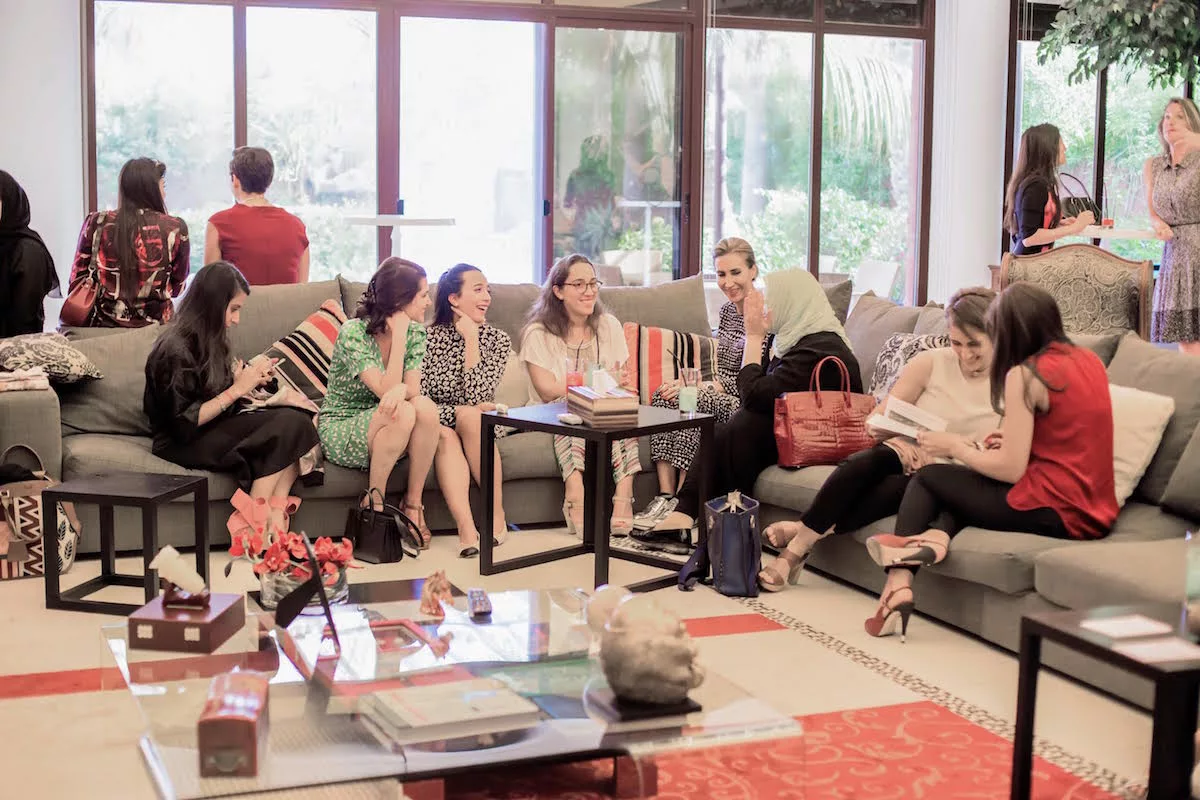The United Arab Emirates is home to the big-screen cities of Abu Dhabi and Dubai. It’s known for the world’s tallest skyscraper and a trio of manmade islands in the Persian Gulf, and most frequent Mideast travelers have laid over in at least one of its luxe airports.
With all of its glitz, glamour, and space-age innovation, the UAE might not seem like a place where conscious companies could thrive. But look closer at the government’s innovation agenda, the nation’s conscious business sector, and the fabric of its culture, and you might change your mind. Here are five signs the UAE could actually pioneer social entrepreneurship in the Arab world.
Is the UAE the most sustainable nation in the world? No, but judging by the country’s aspirations, it could be a rising star.
The UAE’s two largest cities were named the most sustainable in the Middle East in the 2016 Arcadis Sustainable Cities Index. While Dubai and Abu Dhabi still ranked in the bottom half globally, they came in ahead of major US cities like Chicago and Atlanta.
Dubai will host the 2020 World Expo, where all eyes will look to see if the desert nation can create a sustainable future outside of the oil sector that fueled its rapid development. The country, which is just 45 years old, now has a bold national innovation strategy that focuses on renewable and clean energy as one of its priority sectors – and individual city plans may come to fruition even faster.
The 2021 Dubai Plan strives for a sustainable city in line with international best practices for consumption, efficiency, and dependence on renewable energy sources. The city government supports clean-energy industries and research in renewable and clean-energy technology.
In Abu Dhabi, the famed Masdar City opened in 2008 as an experimental eco-development. The goal was a “greenprint” for rapid urbanization and reductions in energy, water, and waste. All of the buildings meet Pearl Building Rating standards, comparable to LEED Gold, and used low-carbon cement and 90 percent recycled aluminum. The 10-year-old Emirati solar power provider Enviromena Power Systems built Masdar City’s solar plant, which was the largest of its kind when it opened.
The city, named for the UAE’s renewable energy company, Masdar, now produces 17,500 megawatt-hours of clean electricity annually through its solar plant and offsets 15,000 tons of carbon emissions per year. General Electric’s Ecomagination Center and the Masdar Institute of Science and Technology both set up shop in Masdar City. And on-site think tanks create a space for dialogue and promote collaborative solutions to solve regional challenges.
The Pearl Initiative launched seven years ago in the UAE. In partnership with the United Nations, the nonprofit business organization focuses on raising standards of corporate governance and aligning companies with the Sustainable Development Goals.
“Core principles of good corporate governance, such as transparency and accountability, can make the region’s businesses answerable to the larger issues we face as a society,” says Carla Koffel, executive director of the Pearl Initiative.“Fostering an accountable and ethical business environment opens doors to innovation, talent, and entrepreneurship and can generate business benefits as well as social impact.”
The Pearl Initiative hosted the second U.N. Global Compact Regional this year and asked businesses to sign a pledge to set sustainable development targets. The organization surveyed business leaders in the Gulf region and found that 92 percent believe working toward the SDGs will positively impact their business sustainability.
Sixty-four percent of Gulf business leaders claimed their company had made a commitment toward the SDGs. The most relevant SDGs were benefitting youth, improving labor standards, and reducing environmental impact, according to the survey.
A crop of consulting firms has sprung up in the UAE to help businesses that are ready to implement sustainable initiatives. Sustainability Platform bills itself as a triple-bottom-line consulting firm that works with companies to translate corporate social responsibility into core operations. Baraka Advisors is a creative agency that develops digital campaigns and communications for social enterprises.
Taka Solutions, a technology and engineering company, retrofits existing buildings to meet green standards. The company uses an innovative paid-from-savings model that allows other businesses to improve energy efficiency and reduce carbon impact without a capital expense.
In Fall 2016, Thomson Reuters Foundation released a study ranking the “Best Places to be a Social Entrepreneur.” UAE placed 19th, above any other Arab country (second only to Israel in the Middle East). The study polled experts on factors that encourage social entrepreneurship – from public receptivity to financial support – and found that social entrepreneurship in the UAE is gaining momentum.
While there is no legal definition of a social enterprise in the UAE, the term has entered the local lexicon. One of the early proof points was the appearance of Impact Hub, which opened a Dubai location in 2014. Part incubator, part community center, Impact Hub Dubai is a workspace for social entrepreneurs.
“In line with a global trend, we’re trying to encourage young people to become social entrepreneurs,” said Clare Woodcraft-Scott, chief executive officer of the Emirates Foundation.
Emirates Foundation, an independent philanthropic arm of the Abu Dhabi government, appointed Impact Hub to design a youth entrepreneurship program aligned with the U.N. SDGs.
Social entrepreneurs in the UAE also have access to a low-cost accelerator program thanks to a volunteer organization called Consult and Coach for a Cause (C3). C3, which received its own Social Enterprise certification with Social Enterprise Mark, stands out from other UAE accelerator programs by addressing key milestones in the social entrepreneur journey like measuring impact.
Take this example: Palestyle, a social fashion brand based in the UAE, partnered with C3 to measure its impact and earned a Social Return on Investment Certificate for improving the lives of Palestinian refugees. The brand employs Palestinian refugee women to produce handbags and clothing and invests a percentage of sales into Palestinian development projects.
Funding options for entrepreneurs continue to grow. Just last year, the UAE became the first country in the Gulf region to create a bankruptcy law that will reduce the risk of doing business. And Beehive launched in 2014 as the first regulated, peer-to-peer lending platform in the Middle East and North Africa.
Chivas Regal’s The Venture, an annual global competition for social enterprises, has turned up several prospects in the UAE. Finalists compete for a week-long training camp at the Skoll Centre for Social Enterprise and $1 million in funding. The previously mentioned Taka Solutions won the Gulf Final in 2016. And this year’s finalists include UAE startup NOW Money, which uses cutting-edge mobile technology to give migrant workers access to banking services.

Elissa Freiha, founder of Womena, a UAE-based group of female angel investors focused on the Middle East and North Africa (MENA) region.
Also of note are two women’s angel investing groups that lean toward impact investing. The Women’s Angel Investor Network formed in Dubai in 2014 to support female entrepreneurs. Womena, women investors focused on the MENA (Middle East and North Africa) region, invests in high-growth sectors to promote economic development and job creation. These two groups have invested nearly $500,000 in a handful of startups in just two years and stand to redefine the role of women in business.
In addition to government and business, the people are what could make the UAE a hotspot for social enterprise. A tell-tale sign? The organic food movement is taking shape, and there is now a substantial market for fresh produce in the desert.
“This was an entirely organic evolution,” says Elena Kinane, one of the founders of Greenheart Organic Farms, somewhat ironically. “We just grew for home consumption. When we realized we were able to grow great quality produce completely chemical free, word of mouth helped turn this into a full-time business.”
After an earlier attempt in 2010, the founders of Greenheart Organic Farms launched an improved farming concept two years later. The farm grows 100 varieties of vegetables — in real soil, from heirloom seeds, and without the use of chemicals. In addition to a home-delivery service, Greenheart supplies more than a dozen UAE restaurants and even has a special garden for its long-time partner Freedom Pizza.
The organic food segment is poised for further growth, as evidenced by the popularity of Ripe Market. The weekly event held at select parks in Abu Dhabi and Dubai attracts a mix of locals and expats for organic shopping and food presentations.
The strength of the arts also indicates a growing receptivity to social enterprise: Al Serkal Avenue, Dubai’s burgeoning arts enclave, is chock full of art galleries, studios, and workspaces for entrepreneurs. The space hosts films, festivals and is home to Dubai’s newest and largest independent arts venue, the Junction.
Galleries in Al Serkal don’t shy away from posing potent social questions. Showcase Gallery’s Ukama exhibition features art from the Shona people who use sculpture to pass down sustainable community values. The Third Line tackles sustainability in a slightly more provocative exhibition of Sophia Al Mari’s “Everything Must Go,” an immersive experience capturing the almost apocalyptic act of consuming.
Conscious lifestyle options create a quality of life that can attract conscious business executives – and there’s further business opportunity in rounding out the lifestyle with more offerings in sectors like housing and health and wellness.
To talk about the possibility of social enterprise in the UAE without mentioning the religious context would be a mistake. In a paper on social enterprise in the United Arab Emirates produced under the International Comparative Social Enterprise, Sarah Johnsen argues that to articulate the concept of social enterprise in a way that is appealing to the UAE, a connection to cultural and religious values is necessary.
“I connect social enterprise with a concept that is pervasive within the local context: religious values,” says Dr. Wasseem Abaza, a professor who teaches a course on Islam and Business at Zayed University in Dubai. “My students engage with this through our religious teachings. There is a prominent role of business in our faith starting with the fact that our prophet was a businessman longer than he was a prophet. He demonstrated social values such as fair trade, trustworthiness, honesty, and stakeholder engagement while still maintaining above average returns.”
Professor Abaza notes that he is not a religious scholar but rather a business professor. Born and raised in Toledo, OH, Abaza studied social enterprise at Case Western Reserve University and wrote his dissertation on peace-building in a business context. He believes religious principles can create business value, and he defines social enterprise to his students as a business where profits and revenue are created through a greater purpose.
In “Social Entrepreneurship in the UAE: Challenges and Recommendations,” a paper published in the International Journal of Sustainable Society, writers Deena Abdo and Cody Morris Paris argue there is also a huge potential market for investing from zakat made by Muslims each year. Zakat is like an annual “tax” or tithing whereby Muslims give 2.5 percent of their wealth to a social cause. The Zakat Fund of the UAE generated more than $20 million in 2012. The journal report states that investing is permissible, as long as the financial returns are not excessive, so there’s a potential synergy with impact investing.
A strong sense of charity and the motivation to integrate personal values with business could create new models for social enterprise. Being such a young country and with so much opportunity, the UAE has the potential to attract talent to develop new sectors and build social objectives into the business infrastructure.
So, yes, the UAE, that glittering country on the tip of the Arabian Peninsula, just might be the place where social enterprise skyrockets in the Middle East.





